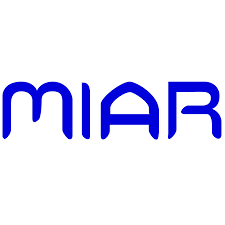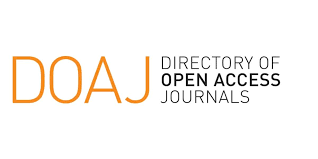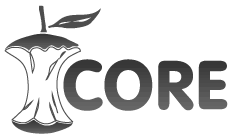Women in physical education in universities of Argentina and Brazil: An approach to their identification
DOI:
https://doi.org/10.36881/ma.v2i1.776Keywords:
university physical education, identification, womenAbstract
The process of university growth of Physical Education in Argentina and Brazil is linked to the construction of knowledge and the incorporation of research practices associated with universities and specialized organizations. Although scientific research in both countries presents different features, they share the tendency to make invisible women researchers. With the objective of knowing and understanding the participation of women in physical education in universities in Argentina and Brazil, this article explains the identification mechanism of scientific researchers recognized since the 1970s in both countries. This is a comparative study based on oral history interviews. This article shares the procedure for identifying the cases to be studied, and further reading about gender and configurations of the scientific construction of the area in order to identify organizing topics for the interviews. The main findings are summarized in the placement of the gender issue in a knowledge community with male dominance, the recognition of the institutional and national processes that make it possible to recognize the cases to be interviewed, and the progress in reading specialized texts that allow identifying the search categories. We overcame by delving into reading about gender and configurations of the scientific construction of the area was deepened in order to identify topics for the interviews with these women.
Downloads
References
Aisenstein, A., SCharagrodsky, P. (2006). Tras las huellas de la educación física escolar argentina. Cuerpo género y pedagogía 1880-1950. Prometeo.
Alberti, V. (2010). Histórias dentro da História. In: PINSKY, C.B (Org.). Fontes históricas. 2. ed. Contexto.
Barrancos, D. (2017). Mi recorrido hasta la historiografía de las mujeres. Descentrada, 1(1), e003. http://www.descentrada.fahce.unlp.edu.ar/article/view/DESe003
Bins, G. N., Silva, L. O., Kuhn, S.S., Terragno, T. M.; Diehl, V. R. O., Tavares, N. da S., Silva, C. M. da. (2023). Docência em Educação Física e maternidades: construindo outras inter-relações. Movimento, 29, e29006. https://doi.org/10.22456/1982-8918.124530.
Carvalho, M. E. P. DE, Rabay, G. (2011). Gênero e carreiras universitárias em 50 anos na Universidade Federal da Paraíba. In: RAMALHO, B. L.;BELTRAN, L. M. E. Carvalho, P. de, Diniz, A.V.S. (Orgs.). Reformas Educativas, Educação Superior e Globalização em Brasil, Portugal e Espanha (p. 237-269). Editorial Germania.
D’Agostino, E., Urtel, M, Webster, C., Mcmullen, J., Culp, B. (2021). Virtual Physical Education During COVID-19: Exploring Future Directions for Equitable Online Learning Tools. Front. Sports Act. Living, 3:716566. https://doi.org/10.3389/fspor.2021.716566
Deleuze, G. (1986). G. Nietzsche y la filosofía. Anagrama.
Edelsztein, V., Elffman, J., Hadad, C., Alcain, J. (2021). Científicas de Acá: una iniciativa para la visibilización de las mujeres en ciencia y tecnología. En Mattio, E. (et al). Libro de resúmenes Congreso de Ciencia y Género.
Foucault, M. (2002a). Microfisica do poder. Editora Geraal.
Foucault, M. (2002b). Vigiar e Punir. Vozes.
Gerhardt, T. E. (Org.), Silveira, D. T. (2009). Métodos de pesquisa. Editora da UFRGS.
Ghouili, Y., Mnedla, S. (2019). The position of women researchers in physical education and sport: Scientific production and valorization. En Workshop Erasmus+ Project ‚Gender Studies Curriculum: A Step for Democracy and Peace in EU-Neighbouring Countries with Different Traditions. Sousse University
Grossi, M. G. R., Borja, S. D. B., Lopes, A. M., Andalécio, A. M. L. (2016). As mulheres praticando ciência no Brasil. Estudos Feministas, 24(1): 406. http://dx.doi.org/10.1590/1805-9584-2016v24n1p11
Iglesias, D., Fernández-Rio, J. (2023). Are women equally represented in high-quality physical education research? Evidence from 2000 to 2020. Sport, Education and Society, 28(5), 594-608, https://doi.org/10.1080/13573322.2022.2054793
INEP. Censo do Ensino Superior. (2020). https://www.gov.br/inep/pt-br/areasde-atuacao/pesquisas-estatisticas-e-indicadores/censo-da-educacao-superior/resultados
Lacchine J E, Almeida, E. A. de. (2022). Mulheres Docentes Na Educação Física No Cefd/Ufes (1970-2021). Trabajo de Conclusión de Curso. [Bacharelado en Educação Física]. Centro de Educação Física e Desportos. Universidade Federal do Espírito Santo.
Macedo, C. G., Berté, I. L.; Goellner, S. V. (2016). História oral na era digital: a experiência do projeto Garimpando Memórias. História Oral, 19(1), 41-58.
Maffia, D. (2002). Feminismo, Ciência e Tecnologia. Costa, A; Salvador, C. (Orgs). REDOR/NEIM-FFCH/UFBA. 320 p. - (Coleção Bahianas; 8).
Marradi, A., Archenti, N., Piovanni, J. (2007). Metodología de las Ciencias Sociales. Emecé.
Méndez, L., Scharagrodsky, P. (2017). La generalización de los cuerpos en perspectiva histórica: una mirada desde las prácticas corporales de las mujeres. Revista Lúdica Pedagógica, 25, 47-60. https://dialnet.unirioja.es/servlet/articulo?codigo=6224509
Mujika, I, Taipale, R. S. (2019). Sport science on women, women in sport science. International journal of sports physiology and performance, 14(8), 1013-1014.
ONU mujeres. (2022). El progreso en el cumplimiento de los objetivos de desarrollo sostenible panorama de género https://www.unwomen.org/es/digital-library/publications/2022/10/el-progreso-en-el-cumplimiento-de-los-objetivos-de-desarrollo-sostenible-panorama-de-genero-2022
Portelli, A. (2017). Historia oral, diálogo y géneros narrativos. Anuario digital, 26, 9-27.
Ricoeur, P. (1994). Ideología y utopía. Gedisa.
Rivero, I. 2021. Discursos sobre juego en Educación Física. Revisión de programas de formación universitaria de posgrado. En VOGLIOTTI, A.; WAGNER, D.; BARROSO, S. 2021. 50 años de la UNRC: huellas de historicidad en su devenir y en la cultura institucional. p. 276-288. UniRío. https://www.unirioeditora.com.ar/producto/50-anos-la-unrc/
Rivero, I.; Wenetz, I. (2021). Mujeres de la educación física universitaria: Rastreo inicial en Argentina y Brasil. Congreso de Educación Física y Ciencias. 2021. UNLP. https://www.memoria.fahce.unlp.edu.ar/trab_eventos/ev.14712/ev.14712.pdf
Santos, J. P. ; Rodrigues, M. C. S. (2021). O Teto De Cristal: Considerações A Respeito Da Participação Da Mulher Nas Áreas De Ciências E Tecnologia. Brazilian Journal of Development, 7(6), 57415-57432.
Silva, E. M. Da, Wenetz, I., Alvarenga, E. (2022). A representatividade feminina e o exercício da docência no ensino superior. Interseções: Revista De Estudos Interdisciplinares, 23(3). https://doi.org/10.12957/irei.2021.64912
Staniscuaski, F. et. al. (2020). Impacto do COVID-19 em mães acadêmicas. Sciencie, 368(6492), 724. https://doi.org/10.1126 / science.abc2740
Tavares, I. (2009). A participação feminina na pesquisa: presença das mulheres nas áreas do conhecimento. In: D. Ristoff et al. Simpósio Gênero e Indicadores da Educação Superior Brasileira (p.31-62). Brasília-DF, 6-7/12/2007. Instituto Nacional de Estudos e Pesquisas Educacionais Anísio Teixeira.
Teixeira, A, B. M; Freitas, M. De A. 2016, Mulheres cientistas nos cursos de física e de educação física na universidade federal de minas gerais. Instrumento: R. Est. Pesq. Educ., Juiz de Fora, 18(1).
Teixeira, A. B. M; Freitas, M. De Almeida. (2015). Aspectos acadêmicos e profissionais sobre mulheres cientistas na Física e na Educação Física. Revista Ártemis, [S. l.], 20. https://periodicos.ufpb.br/ojs/index.php/artemis/article/view/27045
UNESCO. (2019). Declaración mundial sobre la educación superior en el siglo XXI: visión y acción. Revista Educación Superior Y Sociedad (ESS), 9(2), 97-113. https://www.iesalc.unesco.org/ess/index.php/ess3/article/view/171
Valenzuela, J, M. Flores. (2012). Fundamentos de investigación educativa. Digital Tecnológica de Monterrey.
Vist Hagen, R. Loras, H.; Sigmundsson, H.; Haga, M. (2022). Association Between Motor Competence, Physical Fitness, and Academic Achievement in Physical Education in 13- to 16-Year-Old School Children. Front. Sports Act. Living 3, 774669. https://doi.org/10.3389/fspor.2021.774669
Wenetz, I.; Rivero, I. (2021). Educação física universitária no brasil e na argentina: articulações possíveis com maternidade? III Simpósio Brasileiro sobre Maternidade e Ciência, 3ª edição, de 06/12/2021 a 10/12/2021.
Wenetz, I; Martins, M. Z. Macedo, C. G. (2023). Mulheres nos gtts do cbce: onde estamos? In: Macedo, C. G.; Costa, M. C. S.; Antunes, M. F. S.; Amaral, A. A. 25 anos dos GTTS do Colégio Brasileiro de Ciências do Esporte: trajetórias e perspectivas, Uberlândia, Navegando Publicações. https://public.cbce.org.br/arquivos/repositorio/6505bbcacfeedlivro2023_25anos_gtts.pdf
Downloads
Published
How to Cite
Issue
Section
Categories
License

This work is licensed under a Creative Commons Attribution 4.0 International License.
The content of the publications is the responsibility of the authors. The journal allows authors to maintain copyright on published articles and documents. The license used is Commons Attribution-NonCommercial International License. CC BY NC

















